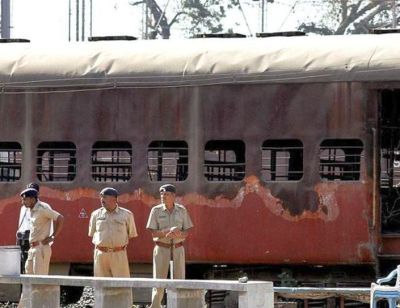 Former Aligarh Muslim University scholar Gulzar Ahmed Wani will walk out of jail after 16 years with an Uttar Pradesh court on Saturday acquitting him of the charge of having orchestrated the Sabarmati Express
Former Aligarh Muslim University scholar Gulzar Ahmed Wani will walk out of jail after 16 years with an Uttar Pradesh court on Saturday acquitting him of the charge of having orchestrated the Sabarmati Express
blast in 2000 that claimed nine lives.
Additional Sessions Judge in Barabanki, M A Khan freed 43-year-old Wani, a suspected Hizbul Mujahideen operative, and co-accused Mobin in the case due to lack of evidence, defence counsel M S Khan, who represented Wani, said over phone.
Wani, who was arrested by Delhi Police in 2001 allegedly with explosives and incriminating materials, is a resident of Peeparkari area of Srinagar (Jammu and Kashmir) and is lodged in a jail in Lucknow.
The blast was carried out on the eve of Independence Day near Kanpur when the train was on its way from Muzaffarpur to Ahmedabad, claiming nine lives and leaving several others injured.
"The court of Additional Sessions Judge M A Khan acquitted both the accused of all the charges as the prosecution could not establish any of the charges levelled against them," the lawyer said.
A case was registered by the Uttar Pradesh police at GRP police station, Barabanki for the alleged offences of murder, attempt to murder, criminal conspiracy, waging war, collecting arms and conspiring to commit offences against the country under the IPC.
Charges were also filed against them under the Indian Railways Act and Explosive Substances Act.
Ten other cases were also registered against Wani. Out of the 11 cases, he has been exonerated in 10 as he has either been acquitted or discharged, the lawyer said.
In one case, Wani was convicted and sentenced to 10 years jail for carrying explosives to trigger a blast in Delhi. However, the Delhi high court had suspended his sentence.
The Supreme Court granted bail to Wani in April this year observing that he has suffered incarceration for over 16 years and has been acquitted in nine out of 11 cases lodged against him.
The apex court had said that Wani would be released on bail from November one on set terms and conditions of the trial court irrespective of the completion of the trial.
Wani was pursuing PhD in Arabic from the AMU when he was arrested from Delhi on July 30, 2001. The arrest was made in connection with explosives recovered in Delhi.
The Lucknow bench of the Allahabad High Court had on August 26, had denied bail to him, saying, "Release of such persons would adversely affect the interests of the society."
Wani had challenged the high court order before the apex court which had last year directed the trial court to expeditiously examine the material witnesses in the case in six months.
The prosecution had alleged that the accused had hatched a conspiracy in May 2000 at Habib Hall, AMU, to carry out a blast in the Sabarmati Express on August 14, 2000. Charges were framed against him in July 2001.
Advocate Khan had argued that in the absence of any material to prove a meeting of mind which is required for proving conspiracy, the accused deserve acquittal as there was no independent material or evidence to prove that any meeting was held at Habib Hall in 2000.
"Since there was no independent material or evidence to prove that any such meeting at Habib Hall held in 2000, so the question that the same was called or attended by Wani or other accused does not arise," he had said.










